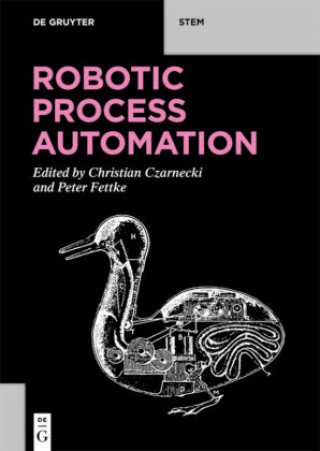
Kód: 33380745
Robotic Process Automation
Autor Peter Fettke
This book brings together experts from research and practice. It includes the design of innovative Robot Process Automation (RPA) concepts, the discussion of related research fields (e.g., Artificial Intelligence, AI), the evaluat ... celý popis
- Jazyk:
 Angličtina
Angličtina - Väzba: Brožovaná
- Počet strán: 430
Nakladateľ: De Gruyter, 2021
- Viac informácií o knihe

55.91 €
Bežne: 58.26 €
Ušetríte 2.35 €

Skladom u dodávateľa
Odosielame za 14 - 18 dní
Mohlo by sa vám tiež páčiť
-
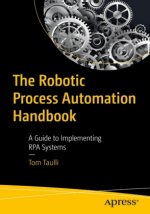
Robotic Process Automation Handbook
44.79 € -19 % -
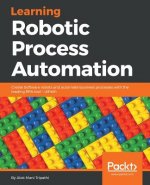
Learning Robotic Process Automation
52.57 € -
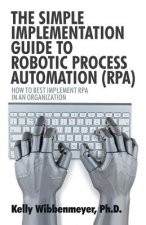
Simple Implementation Guide to Robotic Process Automation (Rpa)
11.72 € -3 % -
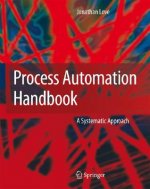
Process Automation Handbook
612.57 € -
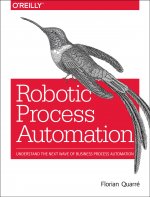
Robotic Process Automation
66.22 € -

The Pragmatic Programmer
49.34 € -2 % -

Fifth Discipline: The art and practice of the learning organization
27.09 € -23 % -

Agile practice guide
47.92 € -3 % -

In Search Of Excellence
11.72 € -18 % -
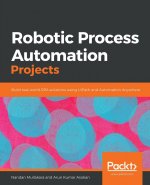
Robotic Process Automation Projects
56.01 € -

Reengineering the Corporation
16.37 € -23 % -

World is Flat
18.49 € -23 % -
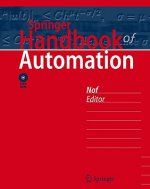
Springer Handbook of Automation
502.35 € -

Reengineering the Corporation
16.07 € -12 % -
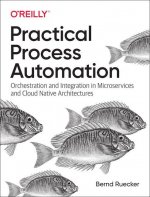
Practical Process Automation
62.28 € -6 % -
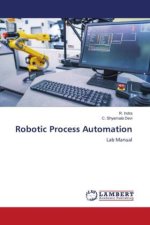
Robotic Process Automation
87.96 € -

Artificial Intelligence: A Modern Approach, Global Edition
78.86 € -

The Song of Achilles
20.42 € -20 % -

Robotic Process Automation Fundamentals for Accounting and Finance Professionals Certificate
716.92 € -

Shiba Inu Puppy Training Book for Shiba Inu Puppies By BoneUP DOG Training: Are You Ready to Bone Up? Easy Training * Fast Results Shiba Inu Puppy Tra
13.14 € -1 % -

Dingoes
9.70 € -

Outlander Volumes 5-8 (4-Book Boxed Set)
38.11 € -6 % -
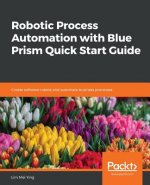
Robotic Process Automation with Blue Prism Quick Start Guide
36.39 € -
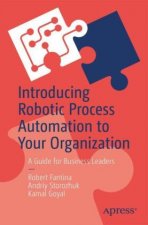
Introducing Robotic Process Automation to Your Organization
54.39 € -2 % -

Mercy
10 € -23 % -

Beautiful
18.49 € -13 % -

Outfoxed
7.88 € -22 % -
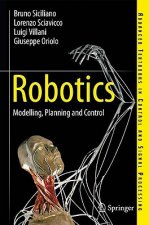
Robotics
137.81 € -

Freddie Mercury
11.52 € -19 % -

Client-Server Web Apps with JavaScript and Java
43.88 € -

Jagdgeschwader II Geschwader 'berthold'
26.69 € -4 % -

Robot Framework Test Automation
34.77 € -

Robotics and Automation Handbook
314.17 € -

Art Of Fire Emblem
45.70 € -9 % -

Building Progressive Web Apps
61.98 € -
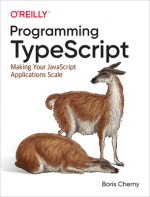
Programming TypeScript
44.58 € -21 % -

Hogyan működik a világ?
12.33 € -18 % -

NOUVELLES AVENTURES DE PAT ET MAT (LES) - DVD
23.04 € -

120 Grossglockner, Sonnblick, Kaprun, Zell am See
18.49 € -

Škola hry na kytaru pro začátečníky
11.72 € -8 % -

Tahací Beruška
5.85 € -24 % -
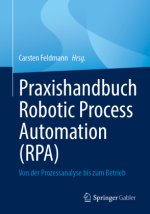
Praxishandbuch Robotic Process Automation (RPA)
63.69 €
Darujte túto knihu ešte dnes
- Objednajte knihu a vyberte Zaslať ako darček.
- Obratom obdržíte darovací poukaz na knihu, ktorý môžete ihneď odovzdať obdarovanému.
- Knihu zašleme na adresu obdarovaného, o nič sa nestaráte.
Viac informácií o knihe Robotic Process Automation
Nákupom získate 140 bodov
 Anotácia knihy
Anotácia knihy
This book brings together experts from research and practice. It includes the design of innovative Robot Process Automation (RPA) concepts, the discussion of related research fields (e.g., Artificial Intelligence, AI), the evaluation of existing software products, and findings from real-life implementation projects. Similar to the substitution of physical work in manufacturing (blue collar automation), Robotic Process Automation tries to substitute intellectual work in office and administration processes with software robots (white-collar automation). The starting point for the development of RPA was the observation that - despite the use of process-oriented enterprise systems (such as ERP, CRM and BPM systems) - additional manual activities are still indispensable today. In the RPA approach, these manual activities are learned and automated by software robots, either by defining rules or by observing manual activities. RPA is related to business process management, machine learning, and artificial intelligence. Tools for RPA originated from dedicated stand-alone software. Today, RPA functionalities are also integrated into elaborated process management suites. From a conceptual perspective, RPA can be structured into input components (sensors in the wide sense), an intelligence center, and output components (actuators in the wide sense). From a strategic perspective, the impact of RPA can be related to the support of existing tasks, the complete substitution of human activities, and the innovation of processes as well as business models. At present, high expectations are related to the use of RPA in the improvement of software-supported business processes. Manual activities are learned and automated by software robots that interact with existing applications via the presentation layer. In combination with artificial intelligence (AI) as well as innovative interfaces (e. g., voice recognition) RPA creates a novel level of automation for office and administration processes. Its benefit potential reaches a return on investment (ROI) up-to 800% that is documented in various case studies.
 Parametre knihy
Parametre knihy
Zaradenie knihy Knihy po nemecky Naturwissenschaften, Medizin, Informatik, Technik Informatik, EDV Informatik
55.91 €
- Celý názov: Robotic Process Automation
- Autor: Peter Fettke
- Jazyk:
 Angličtina
Angličtina - Väzba: Brožovaná
- Počet strán: 430
- EAN: 9783110676686
- ISBN: 3110676680
- ID: 33380745
- Nakladateľ: De Gruyter
- Hmotnosť: 752 g
- Rozmery: 174 × 246 × 29 mm
- Dátum vydania: 10. May 2021
Obľúbené z iného súdka
-

The Art of Doing Science and Engineering: Learning to Learn
23.45 € -2 % -

Unreal Engine 5 Game Development with C++ Scripting: Become a professional game developer and create fully functional, high-quality games
60.46 € -

Deep Utopia
32.95 € -2 % -

Making of Prince of Persia
19.81 € -17 % -

Godot 4 Game Development Projects - Second Edition: Build five cross-platform 2D and 3D games using one of the most powerful open source game engines
46.91 € -

Princeton Review AP Computer Science Principles Prep, 2024: 4 Practice Tests + Complete Content Review + Strategies & Techniques
18.90 € -18 % -

Embedded Systems with ARM Cortex-M Microcontrollers in Assembly Language and C: Fourth Edition
93.83 € -

Python Crash Course, 3rd Edition
41.25 € -18 % -

The Software Engineer's Guidebook
44.38 € -

The Economy of Algorithms
13.34 € -17 % -
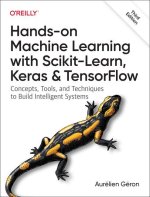
Hands-On Machine Learning with Scikit-Learn, Keras, and TensorFlow 3e
75.93 € -15 % -

Rust For Rustaceans
33.46 € -17 % -
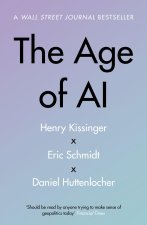
Age of AI
12.12 € -23 % -

Engineering Management for the Rest of Us
18.60 € -2 % -

Engineering Management for the Rest of Us
28.30 € -1 % -

Deep Learning with Python
63.19 € -

Lean UX
42.06 € -16 % -
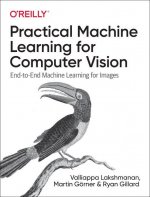
Practical Machine Learning for Computer Vision
70.98 € -20 % -

Adobe Illustrator Classroom in a Book
73.60 € -

The Mysteries of Monkey Island: All Aboard to Take on the Pirates !
34.47 € -15 % -

Algorithm Design Manual
72.49 € -

Software Architecture: The Hard Parts
67.84 € -14 % -

The Age of AI: And Our Human Future
17.58 € -17 % -
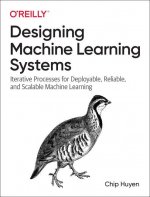
Designing Machine Learning Systems
52.37 € -21 % -
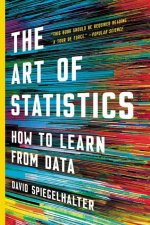
The Art of Statistics: How to Learn from Data
16.37 € -22 % -

Google Cloud Certified Professional Machine Learni ng Engineer Study Guide
65.11 € -

Terraform - Up and Running
56.11 € -15 % -

The Age of AI: And Our Human Future
25.78 € -16 % -

SQL for Data Analysis
56.21 € -14 % -

Princeton Review AP Computer Science a Prep, 2024: 5 Practice Tests + Complete Content Review + Strategies & Techniques
19.10 € -17 % -

Abenteuer Informatik
31.34 € -

Practical Sql, 2nd Edition
32.55 € -20 % -

Full Stack Development with Spring Boot 3 and React - Fourth Edition
54.90 € -

Decoding the Last of Us: The Remnants of Humanity
34.27 € -
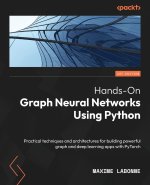
Hands-On Graph Neural Networks Using Python: Practical techniques and architectures for building powerful graph and deep learning apps with PyTorch
68.04 € -
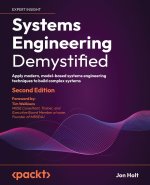
Systems Engineering Demystified - Second Edition
63.59 € -

The AI-Powered Product Manager: Combining Strategy and Technology
22.03 € -

Book Of Dash
31.94 € -11 % -

Information Theory
24.66 € -19 % -

Basiswissen Softwaretest
41.45 € -
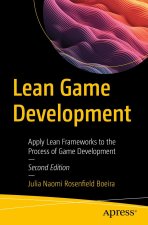
Lean Game Development: Apply Lean Frameworks to the Process of Game Development
63.80 € -

Angular for Enterprise Applications - Third Edition
58.23 € -

Build Stunning Real-time VFX with Unreal Engine 5: Start your journey into Unreal particle systems to create realistic visual effects using Niagara
60.46 € -

Acing the Certified Kubernetes Administrator Exam
76.13 € -

Praxiswissen Softwaretest - Test Analyst und Technical Test Analyst
49.74 € -

Creating an RTS Game in Unity 2023: A comprehensive guide to creating your own strategy game from scratch using C#
66.32 € -

SwiftUI for Masterminds 4th Edition
55.30 € -

Unleashing the Millionaire Power of ChatGPT: Make More Money as a Beginner, Entrepreneur, or Business Owner with AI Chatbots & Custom Prompts - Boost
24.76 € -

Pro Oracle Database 23c Administration: Manage and Safeguard Your Organization's Data
54.19 € -17 %
Osobný odber Bratislava a 2642 dalších
Copyright ©2008-24 najlacnejsie-knihy.sk Všetky práva vyhradenéSúkromieCookies


 21 miliónov titulov
21 miliónov titulov Vrátenie do mesiaca
Vrátenie do mesiaca 02/210 210 99 (8-15.30h)
02/210 210 99 (8-15.30h)